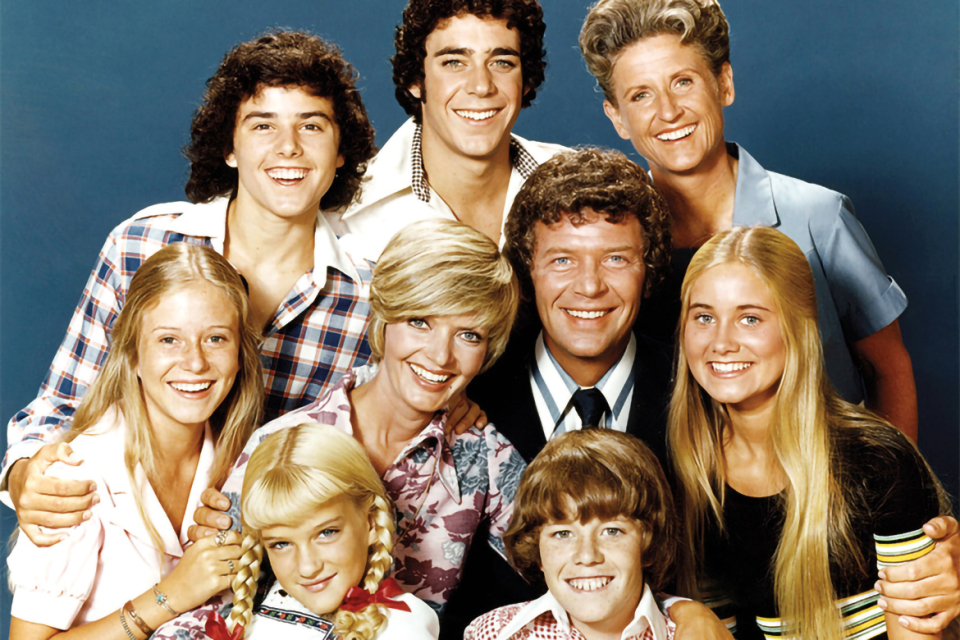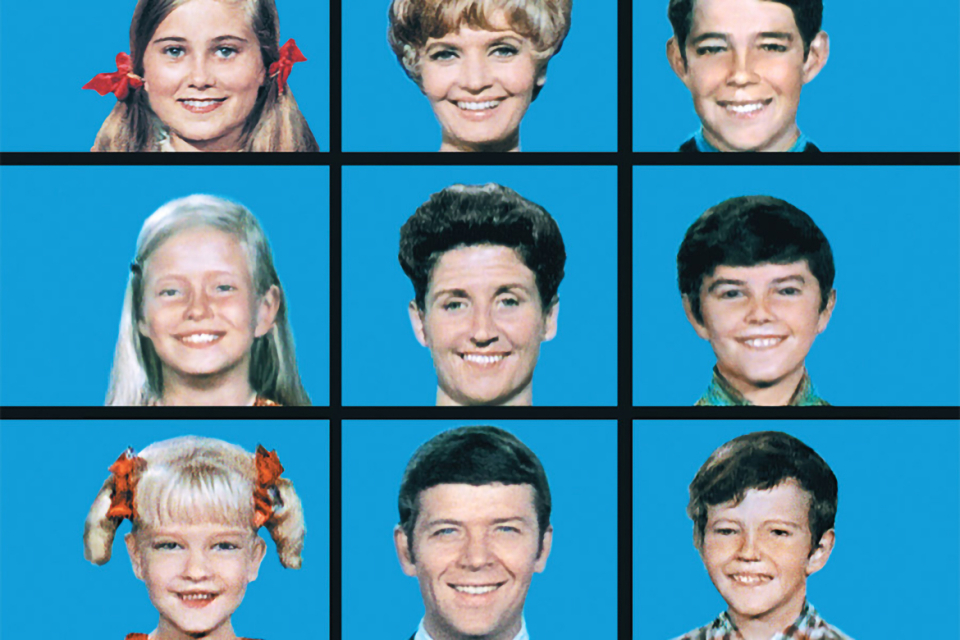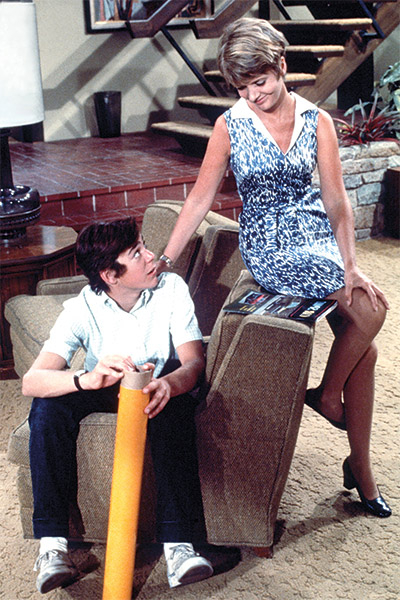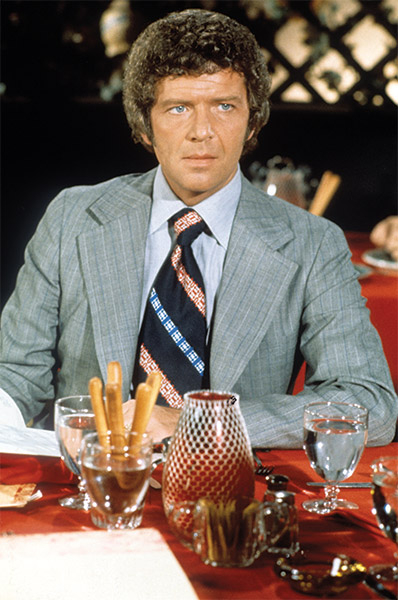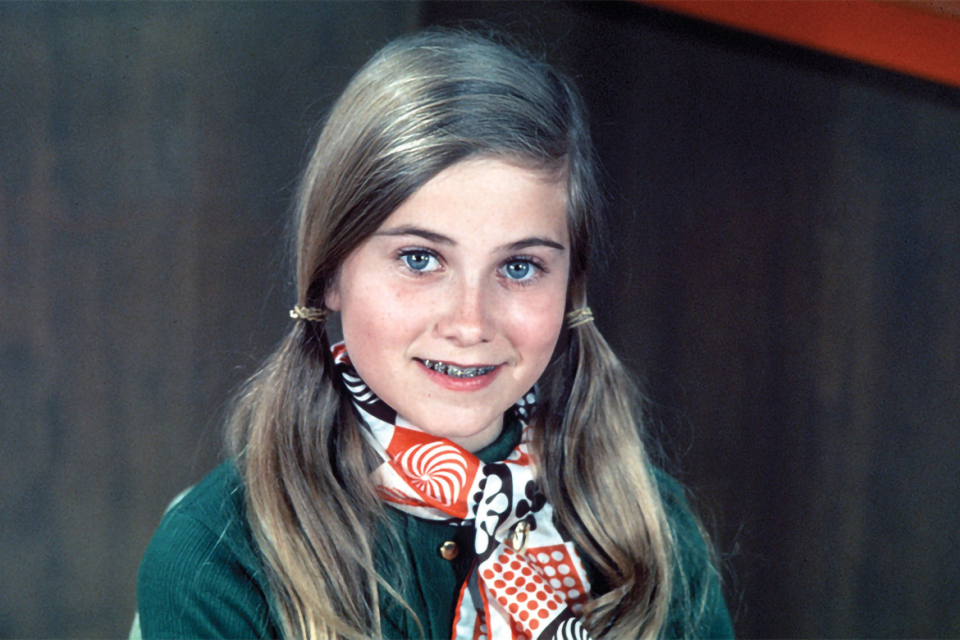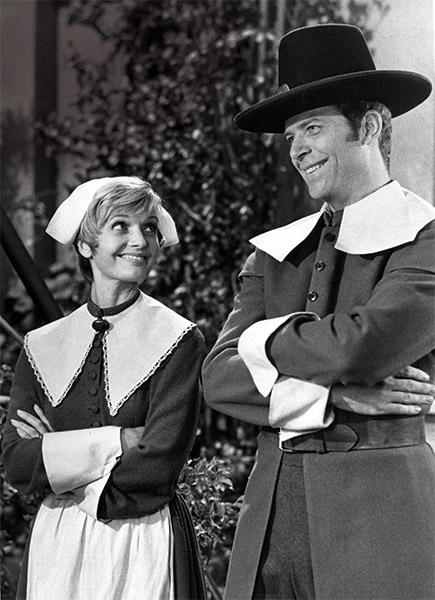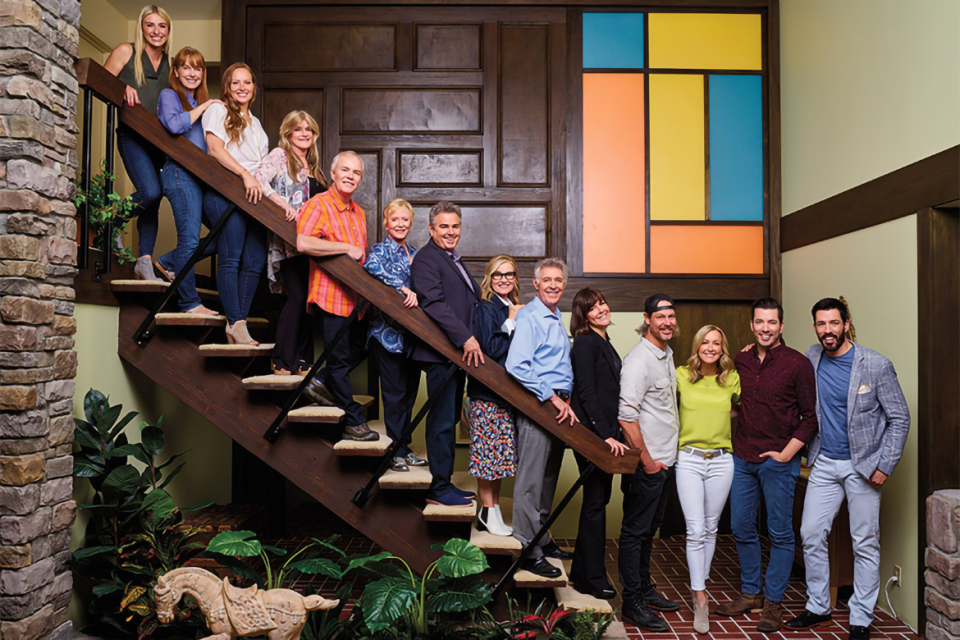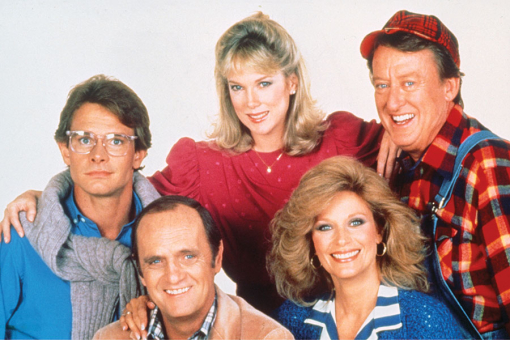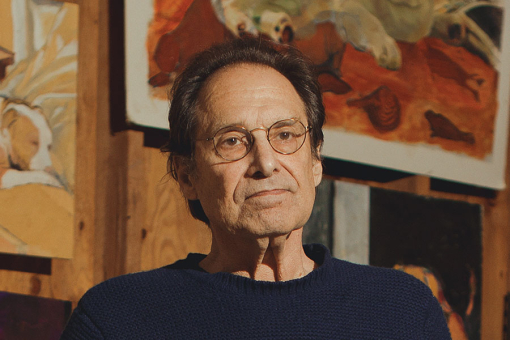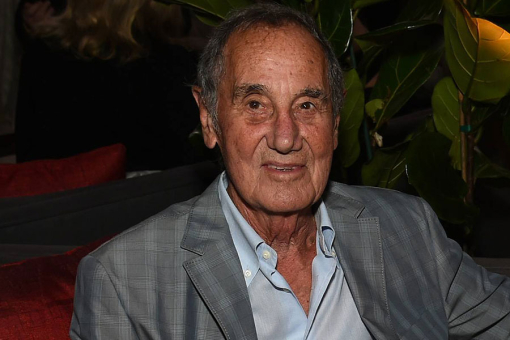Television has long presented cozy, idealized visions of the American family.
Perhaps no series has done that more than The Brady Bunch. This year marks the 50th anniversary of its 1969 premiere.
For five seasons, as the Vietnam War, Watergate, social unrest and other conflicts roiled the early 1970s, the series offered wholesome tales of "a lovely lady," "a man named Brady" — as the theme song went — and their six kids.
Rich in morality lessons and kitsch, the lighthearted series explored typical family conflicts from a child's perspective.
Florence Henderson played cheerful homemaker Carol Brady, and Robert Reed was architect Mike, a strong, wise father figure. Their blended brood ranged in age at the outset from about five to 14. Each of Mike's sons — Greg (Barry Williams), Peter (Christopher Knight) and Bobby (Mike Lookinland) — was about the same age as one of Carol's daughters: Marcia (Maureen McCormick), Jan (Eve Plumb) and Cindy (Susan Olsen).
The kids' chemistry was a big part of the show's charm. Henderson and Reed had been stars of the Broadway stage. As the waggish live-in housekeeper, Alice Nelson, veteran TV actress Ann B. Davis was an important part of the clan.
Executive producer Sherwood Schwartz had read that, in 1965, 29 percent of marriages included a child or children from a former marriage. He thought that opened up "a wonderful Pandora's box of new kinds of stories," as he told the Television Academy Foundation in 1997 during a six-hour videotaped interview (TelevisionAcademy.com/interviews/schwartz).
But in their suburban bubble, the Bradys struggled chiefly with challenges that traditional nuclear families faced, such as sibling rivalry, teenage dating, measles or the angst of putting on a class play.
To avoid dating the show, Schwartz deliberately wrote no catchphrases into the scripts, but several lines were destined to stick: "Marcia, Marcia, Marcia" (said in only one episode, by the way), "Oh, my nose," and "Pork chops and applesauce," to name just three.
The series premiered on ABC on September 26, 1969, and ran through March 8, 1974. It was produced by Paramount Television on Stage 5 of the studio's Hollywood lot, except for three location trips — to Hawaii, the Grand Canyon and Kings Island amusement park near Cincinnati.
Though perennially on the cusp of cancellation in its initial years, The Brady Bunch saw such a sensational rebirth in syndication that it would, over time, spawn another series, TV specials and movies, a stage parody and a feature film.
And it doesn't stop. In September, HGTV premiered A Very Brady Renovation, a reality series starring all six kids, who are now in their 50s and 60s.
Partnering with the network's reality stars, they're seen redoing and expanding the actual San Fernando Valley house that represented the exterior of the Brady home. (Viewers can catch up on the show — which delivered the network's biggest audience in two-and-a-half years — on the app HGTV GO.) The network bought the home for $3.5 million in a bidding war last year.
Also in the works: a Broadway-bound stage musical, possibly starring some of the original actors.
To mark The Brady Bunch's golden anniversary, emmy contributor Jane Wollman Rusoff interviewed the surviving cast members (except for Eve Plumb, who declined to chat). She also spoke with Lloyd J. Schwartz (Sherwood's son), who was a producer on the original series, several movie spinoffs and the new HGTV show. Henderson's comments are from an interview Wollman Rusoff conducted with her in 2007.
Henderson died in 2016; Davis in 2014; Sherwood Schwartz in 2011; and Reed in 1992.
THE SHOW
Barry Williams (Greg Brady): When I got the script, it was called The Bradley Brood. The word bunch was contested by the network because of its association with gang members and movies of that ilk.
The blended family aspect was never fully explored, except for episodes of the boys versus the girls: who's stronger, who's smarter. One of the things that made the show timeless was that we didn't inject ourselves into current events, except in a lighthearted way.
Douglas Cramer (executive vice-president of production, Paramount Television): ABC felt the show had potential. It tested well, and advertisers liked it. It was very similar to the [1968] movie Yours, Mine and Ours, which was made by Paramount. That was probably why the network and Sherwood came to Paramount.
Critics weren't wild about the show. The fact that Sherwood was producing it would get their backs up, because he'd created Gilligan's Island. Fortunately, we had Florence and Bob, who gave The Brady Bunch legitimacy, which is what we'd hoped for.
Lloyd J. Schwartz (producer, dialogue coach): The show was originally supposed to be about two families coming together, and the impact that had on the kids. But as time went on, we realized it was all about the kids.
We got flak — "This isn't the way families are; why don't they take on the world?" — but that wasn't our mission. We did episodes about the kids themselves, rather than the world situation. And in subtle ways, we commented on society, like when Marcia wanted to join the all-male Frontier Scouts because she thought a girl should be able to be part of it.
Christopher Knight (Peter Brady): We were being produced at the height of the Vietnam War, but The Brady Bunch ignored that, as well as America's deep social unrest. We just dealt with home and family.
THE CASTING
Cramer: Originally, Sherwood wanted to cast Shirley MacLaine and Gene Hackman as the parents. Of course, he had no shot at getting them. But we were determined to get good, solid actors for the mother and father. Both Florence and Bob had to be talked into it. Bob was never really happy with the role, but he was terrific in it. Florence was extraordinary. They watched over the kids like mother and daddy hens.
Schwartz: Dad looked at 464 kids and narrowed it down to two sets, according to hair color. He wanted the kids' hair to match the parents', and the parents hadn't been cast yet. One boy, Mike Lookinland, would work as either a blond or [a brunet]. So once Florence was cast, Dad cast the kids.
Mike Lookinland (Bobby Brady): My hair was strawberry blond, reddish. For the first season, they used a rinse that wasn't permanent. When I sweated, it melted and ran down my forehead. After that, they used permanent dye. But now and then, they'd have to color my light roots.
Maureen McCormick (Marcia Brady): I was turning 12 when I went in to meet Sherwood Schwartz. He was a really nice guy, very much a family man. They had two different sets of kids ready to go. When they decided on Florence, I got the role.
Susan Olsen (Cindy Brady): At the audition, three days after my seventh birthday, I talked about a recent job I'd had on Gunsmoke. Sherwood and John Rich, the director, thought I was really cute and funny, because I explained to them how I was supposed to have been bitten by a rattlesnake, but it was a fake snake. Here was this little girl explaining how special effects work!
Lookinland: They liked me because, even at age nine, I could concentrate. I could sit and have a conversation with an adult. That was important for a job that requires you to pay attention.
Williams: I was 14 when the show started. I had a lot of experience as an actor and had worked at Paramount, so the network and studio were aware of me. John Rich had directed the episodes of That Girl and Gomer Pyle that I was in. Maybe that tipped the scale in my favor.
Henderson: I had no intention of doing a series. But I did the pilot, never thinking it would sell. Then I went to Europe to film Song of Norway. A few months later, lo and behold, the pilot sold.
Joyce Bulifant (actress, The Mary Tyler Moore Show): I auditioned, got the part of Carol Brady and signed a seven-year contract. Then I went and picked out wardrobe. When I showed Sherwood and John Rich the dress I was going to wear for the wedding scene, they didn't say anything. Then I came out wearing the suit for after the wedding. They still didn't say anything. I asked, "Is something wrong?"
They said, "ABC in New York wants Florence Henderson, but we're fighting for you. If Florence does it, it will be like The Donna Reed Show, but we want The Lucy Show. Go home and we'll let you know."
Sherwood came by the house. He was devastated because now, with Florence, the show was going to take a whole different turn. I didn't sue, because I figured if somebody doesn't want you, that's just the way it goes. But I didn't pay attention to the business part of acting as much as I should have.
Schwartz: We used Joyce in another series [NBC's Big John, Little John], though I can't say we made it up to her. She had been cast as Carol Brady, and then Florence became available. It was my dad's unhappy chore to tell Joyce she didn't have the role.
That change influenced the rest of the casting, because Joyce was funnier than Florence. That meant we had to get a new housekeeper to do more comedy. So we let go of the housekeeper who'd already been cast. Nobody had signed contracts. Ann B. Davis became the housekeeper.
THE CHARACTERS
Henderson: I wanted to play Carol Brady as the kind of mother I wished I'd had. My own mother was cold. We all got spanked. I always longed to be hugged or spoken to gently or praised. I think that explains why I'm so grateful for the affection I received from doing that little show. It was filmed through the eyes of a child. It's what everyone longs for: a family that's forgiving and has unconditional love.
McCormick: My character was emotional and wanted to bring people together. Marcia was similar to me when I was growing up, but what was different is that I wasn't popular. I had great friends, but I always felt unpopular.
Knight: Peter was very much me — the opposite of Marcia. She was sugar and spice and everything nice, which is what Maureen really was. I was snips and snails and puppy dog tails, all about being a boy.
Williams: Greg was America's most reliable big brother. He looked out for the kids. He liked to test crossing the line, but he was honest and sincere.
Lookinland: Bobby was very much like me — a happy-go-lucky kid who jumps around and has serious moments but mostly is just enjoying himself.
Olsen: By the time the show got going, I was eight and playing a five-year-old. My mother did my hair. It wasn't naturally curly, so I had to sleep in curlers. For the audition, I wanted pigtails, because I was copying Buffy on Family Affair. But I had no idea I wouldn't be allowed to change it back. I had to wear it that way, day in and day out.
THE TONE
Bruce Bilson (director): In the three episodes I did, the kids never acted out or were spoiled brats. They were cute and very professional. You just brought 'em in and brought 'em out.
McCormick: The cast had instant chemistry. We were a family. I loved every single person on that show — including the producers, the directors, the amazing crew.
Olsen: The set was extremely happy. Guest stars would cry when their episodes were over because they never wanted to leave. That made me feel proud.
Cramer: It was a very stormy set. I don't think Sherwood was ever that wild about either Florence or Bob. They were always asking why their characters would do what they did and how it related to children — Sherwood was always asking about the laugh line. Bob and Florence had opinions about everything, from the set to the clothes and on and on.
Everybody took a lot of handling. It looked like a very simple and easy show, but it was every bit as complicated as Mission: Impossible, which we were doing at the same time on the same lot.
FLORENCE HENDERSON
Schwartz: Acting came so easily to Florence that I would say to the director, "She has so much more to give." And we'd stretch her. I wanted to make the kids listen to the other actors. So, sometimes I'd go up to Florence before a take and change some of the lines so the kids couldn't just answer by rote. They had to pay attention.
Lookinland: Florence had a kind of light that shined out into the room. Her kids [in real life] are the same age as my brothers and sisters, so there was a sort of stepfamily going on. We'd go camping and have sleepovers. Chris Knight's brothers and sisters were part of it, too. We were like this other family besides the Bradys. The show was just the surface.
Henderson: Barry had a big crush on me.
Williams: I was 15 and definitely had a crush on Florence. She treated me like an adult, so I was attracted to her and also to her experience onstage as a Vegas cabaret performer, because I wanted to add music [to my repertoire].
Once, I invited her out to a legitimate date at the Cocoanut Grove in the Ambassador Hotel for dinner and to listen to music and talk about cabaret. I was a nervous wreck. Everyone was looking at us and whispering. But we ended up having a nice time.
McCormick: Florence came from a family of 10 kids and had a really hard childhood. She wanted to spread her love. She had a wonderful sense of humor.
Olsen: We were all close with Florence. She would have us over to her house. Maybe one weekend I'd have a sleepover with her daughter, Lizzie, and Maureen might be there visiting her older daughter, Barbara. Her son Robert and I had birthdays that were close together, and Florence would throw parties for the two of us at her home.
Knight: Florence was a stern parental figure who would make sure you toed the line, but she also had an inner child you could have fun with. I loved her more than my own mom — but who wouldn't? She didn't have to discipline me! But if the kids got too rambunctious late in the day, she'd be the one to tell you to straighten out.
She had this other side: She could be very bawdy and blue. I learned that only when I became an adult.
Schwartz: Florence was just one of the guys with the crew. When we were filming in Hawaii, we had a party one night. I had two zombies and danced with her. I don't drink at all, and I don't dance, either. The next morning she said: "If I ever told your father what you asked me to do last night!"
Henderson: Of course, I can be raunchy. But I don't do it to shock. It's more funny, earthy humor.
ROBERT REED
Bilson: Bob hated doing the show. You'd ask him, "What are you going to do after The Brady Bunch?" and he'd say, "Penance." He felt he was a better actor who could be doing better things.
Schwartz: Bob thought it was a silly show. Dad liked his performance much more than I did because he loved that we were presenting a strong father figure when a lot of TV fathers were — and still are — idiots.
One time, when a shot ended, Bob looked into the camera and said, "Sherwood, I hope you fry in hell for this!" I never had a nice conversation with him. He was under contract to Paramount and had to try out for The Brady Bunch. He wanted to be a leading man; suddenly he was a TV father with six kids.
Lookinland: Robert Reed was the drama. When the fireworks started, we were shuffled off to our dressing rooms or the schoolroom. But around us kids, Bob was great.
Olsen: Bob was super-close to us. Right about when the show started, he got divorced, and his ex-wife took their daughter to live in Chicago. I think the only thing he enjoyed about The Brady Bunch was that he got to be a father. He loved us kids as though we were his own.
When I was nine, my mom told me that Bob was gay. She didn't want me to hear something and think that was bad. The other kids knew, too, but we never brought it up when we were doing the show.
McCormick: Bob was a very serious actor. If Florence was in the scene, she'd want to have fun, but Bob took everything much more seriously. He fought for a lot of realism in the show.
Knight: Bob was frustrated and probably acting out in a way that wasn't helpful for the show. But as an actor, he wanted to perform in a different way and couldn't do that on this show.
Williams: We kids knew there were issues and arguments and bad words flying between Robert and the production team — Sherwood, in particular — and the network. But those were almost always handled outside our presence. I was more aware of things because I spent more time with Bob than the other kids did. I found him to be a very good mentor for acting.
THE BRADY HOUSE
Cramer: For the style and feel of the house, we went for suburbia. We gave it a down-to-earth, middle-class American look.
Bilson: One of my favorite things was that there was no toilet in the bathroom of the Brady house.
McCormick: The stairway just ended, because there was only one floor [to the set]. We would all hide behind the corner up there and laugh and tell jokes and flirt.
Knight: We never worked at the house in Studio City that they used for the exterior. They found a single-story house and put a window above the driveway, where there wasn't one, to make it look like there was a second floor.
Williams: We were all shocked when we saw the Brady set. There wasn't a real backyard: it was indoors and had AstroTurf. The trees were painted on a huge canvas, about 30 feet high and 150 feet around, which encircled an entire wing of the soundstage. [Director] John Rich was livid, because the AstroTurf looked phony — he put dirt on it to make it look more believable.
FUN AT WORK
Schwartz: I'd had experience running a summer camp. So when they gave me six kids to work with, I said, "We've got to make this fun for them." I invented songs and games. We'd run all around the lot. Even the acting was like arts and crafts:
"You're putting on a show" was my approach. The head of the studio called me in to complain. He said, "These kids are expensive property." I don't know where I got the guts or stupidity to say, "They're not property. They're kids. If you don't like how I'm handling it, you'll have to fire me." There were no repercussions, and I kept doing it the way I was doing it.
Williams: During filming, they wouldn't let me surf or go skiing or ride a motorcycle, or let Susan ice skate or go horseback-riding. But we did all those things, because Sherwood disregarded that Hollywood mentality. We'd go up to the catwalks on top of the set and watch scenes being done.
Lookinland: We had fun on the lot. We'd go on the Bonanza set. When they gave us a half-hour for lunch, Chris, Susan and I — and sometimes Eve — would run around there. We were kids, but we had real jobs.
Olsen: It was a job, and we took it seriously. It was a little bit treacherous playing in the backyard between scenes — if you fell down while wearing a dress, you skinned your knees. If you wanted to go on the swing set, you had to get a prop guy to nail it down so it didn't tip over.
McCormick: We all usually went to the commissary for lunch. It was cool because there were so many great shows being shot on the lot. You'd see people from Star Trek and Happy Days.
Williams: There were pranks on set. I tried to convince Eve that I had a fake eye and went to an ophthalmologist and got one to show to her. I cupped it in my hand and pretended to take it out of my eye. She screamed!
CAST CRUSHES
Schwartz: All the kids got along great. Dad hadn't made character descriptions, because he wanted regular kids. As time went by, we'd tailor the episodes to who the kids really were. Eve's parents set her apart a little bit. So in a lot of the "Jan" episodes, you saw that she didn't want to be part of the group.
Olsen: We were all very close. We each picked our counterpart as a love interest at one time or another. Eve and Chris paired up, and Maureen had a crush on Barry. During the first season, Mike and I had a fake wedding; Maureen performed the ceremony. Later, when Mike's feelings cooled down, I got a crush on him. But by then, he was on to Eve.
Schwartz: Hormones are raging for kids at 15 or 16. I felt my job was to keep Maureen and Barry off each other. I told Barry, "Maureen is a beautiful girl, but she also has beautiful friends."
McCormick: Barry and I had huge crushes on each other — but at different times. I'd have a crush on him when he was dating somebody else; he'd have a crush on me when I was seeing someone.
Williams: Maureen and I had a romance. Our first kiss was in Hawaii. We broke away from the studio teacher and chaperones, walked to a place that was private, and kissed. Our relationship was on-again, off-again. I never expected it to go anywhere, but I was attracted to her. She was the epitome of the California girl.
Knight: When we started, I didn't like Barry. He intimidated on purpose. He identified as an adult and didn't have time for us kids. The good thing about finishing the pilot was thinking, "Great! I'll get away from him!" But when the pilot got picked up, I thought, "Now I'll have to see him again!" But we got over all that right away in the first season.
We paired up: Barry claimed Maureen, Eve claimed me. Mike and Susan acted as though they were adolescents, though they were only 12 and 13.
Lookinland: We were all good work colleagues and pals. I have to credit the Schwartzes for that. They cast people who were not only right for the roles but had the right family dynamic.
MEMORABLE EPISODES
Bilson: The first episode that I directed included the grandparents — played by Florence and Bob in old-age makeup. When I came to work on the first shooting day, there were these two people playing old age up to the hilt. But when I came back from lunch, they'd changed to being themselves. It was sort of a shock.
McCormick: I got real braces on my teeth for a week of work. It was crazy — and it hurt. My mouth was sore for weeks.
Olsen: My favorite episode is when Greg and Peter go on a double date. It's really funny. Peter wore a fake moustache to make himself look older. And I like the episode where Bobby is enamored with Jesse James. It's a bizarre episode with a dream sequence that's kind of macabre.
Schwartz: My favorite episode is the one where Bobby's hero is Jesse James. There's a dream sequence on a train, where James shoots the family with a big cardboard gun. I said, it would be more interesting if they die [realistically], instead of dying funny. So I told Mike how to react appropriately — that the scene would be like seeing someone really getting killed. We did it that way, and it was horrific.
Afterward, I took Mike aside and had him come down from all that because he was really young. We talked about his dog getting run over and horrible stuff. At the end of the episode, Bobby turns in his toy guns to his parents.
Lookinland: My favorite is the one where Greg has to make a movie for his high school history class, and we got to dress up like pilgrims.
Williams: My favorite is "Adios, Johnny Bravo" because of the music that was in it — I was [envisioning] Greg going toward a pop-star world.
THE UNEXPECTED
Williams: I was on hold for an episode, meaning not expected to be called in to work. So I was at home chilling out and experimenting with weed. In the middle of that, I was called to work. I did a little more weed before I left, because I thought it would be fun to recreate my character by spicing it up and being off-the-wall.
When I got on set and the director said, "Action!" I went into a deep state of paranoia and froze. I tripped over a bike and pretended I hadn't. I started the first couple of takes by ad-libbing. Florence and Bob were going, "Hmmm." They knew. We did the scene again with the straightest performance I could muster.
Knight: I kept saying "hurry" with a New York accent — my parents are from New York — which the director didn't want. After about the eighth take, I was really embarrassed, so I asked, "Can I just say rush"? And he said, "Absolutely!" That was an empowering moment and a great lesson in finding out that lines aren't etched in granite. Just find a word that says the same thing and fits better in your mouth.
Lookinland: Once, they were filming in the backyard, so the other end of the stage — where the living room, kitchen and bedroom sets were — was dark. I was walking through that dark end to the bathroom and saw an electrical connection on fire. I ran back and yelled, "There's a fire!" Afterward, Sherwood said: "Mike, I think you might have saved our show."
McCormick: A million things went wrong. Once, a light fell on Susan and hurt her face. And when we were filming on a rollercoaster, the camera came off and hit us. I think Susan fell off the outrigger into the ocean in Hawaii, but Florence caught her. It was scary.
Schwartz: People wrote that everybody was drowning and saving one another's lives in Hawaii. But that wasn't so. Nobody saved anyone's life. The water wasn't that deep.
THE END… OR SO IT SEEMED
Olsen: I was relieved that we were canceled, because I'd reached age 12 and wasn't cute anymore. They didn't know what to do with me.
I felt completely awkward and thought, let's get out of here before there's a very special episode: "Cindy Gets Her Period."
Williams: I was very upset when the show was canceled. Our ratings were as strong as they'd ever been. I thought there would be opportunities for Greg to grow up, which would have been helpful to my transition professionally. But that April, there was a phone call from the network: "The Brady Bunch isn't coming back."
That was on a Friday. On Monday, I went to the studio to get my things. The same guard that was there for the last five years told me I had to park in the extras' lot. The parking space that had had my name on it on Friday had already been painted over with somebody else's name.
McCormick: My feelings were mixed. Part of me was excited to have a life and be able to play other roles, and part of me was sad that it was ending and I wouldn't be there hanging out with all those great people.
Knight: I was somewhat relieved, because there were things in school that I wanted to do. I was going off to high school, where there was a lab and industrial arts class and age-appropriate girls.
Lookinland: It all ended with a call from the producers. I felt sadness and relief. We weren't cute anymore, and they were always struggling for budget. Paramount didn't want to fund us, even though we were a hit show.
Schwartz: The ratings were always okay — never very good or very bad. But we were always on the verge of being canceled. When we finally were canceled, we were doing well, though.
The show was never that popular when we were originally on the air. But it did brilliantly in syndication — it was a huge success. That's one of the reasons The Brady Bunch is a touchpoint of Americana today. It has had a very weird, increasing, retrospective success.
This article originally appeared in emmy magazine, Issue No. 10, 2019

